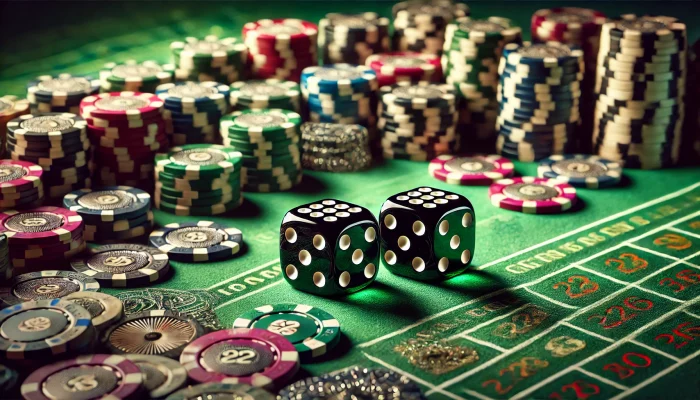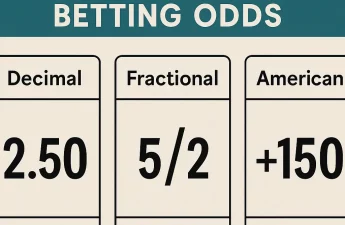The house advantage is the built-in mathematical edge casinos have over players, guaranteeing their long-term profits. It’s determined by the probabilities and payouts of each game, with higher-edge games like slots favoring the casino more than lower-edge games like blackjack. Understanding the house edge and theoretical return percentages is essential for making informed gambling decisions. Dive deeper to learn how casinos use probability theory and statistical modeling to calculate their advantage, and uncover strategies to minimize the impact of the house edge through ideal bet sizes, game selection, and bankroll management.
The Concept of House Advantage
The concept of house advantage is fundamental to understanding casino games. It’s the built-in mathematical edge that casinos have over players, which guarantees they make a profit in the long run. This house advantage is a product of casino operations, where the rules and payouts of games are designed to favor the establishment.
As a player, you need to be aware of the house advantage for each game you play. This knowledge will inform your decision making and help you manage your bankroll more effectively. For instance, games like blackjack and baccarat have relatively low house advantages, around 1%. In contrast, slot machines and roulette can have house edges as high as 5% or more.
Understanding the concept of house advantage is pivotal in traversing the casino landscape. By recognizing the inherent mathematical advantage that casinos hold, you can make more informed choices about which games to play and how to approach them.
Calculating the House Edge
Understanding the mathematical probabilities behind casino games is essential. Calculating the theoretical return percentages for various bets can provide valuable insights.
Applying these principles in a practical context has significant implications for both players and casino operators.
Mathematical Probability Calculations
Calculating the house edge requires a mathematical approach that considers the probabilities of various outcomes in a casino game. This involves statistical modeling and numerical simulations to determine the expected return for the player and the corresponding house advantage.
The house edge is typically expressed as a percentage, representing the long-term mathematical advantage the casino has over the player. For example, in a game with a 5% house edge, the casino can expect to keep 5% of all the money wagered in the long run.
To calculate the house edge, game designers analyze the game’s rules, payouts, and the probability of each outcome. By using probability theory and statistical analysis, they can determine the expected value for the player and the corresponding casino advantage. This allows casinos to set appropriate payouts and guarantee a consistent long-term profit.
Understanding the mathematical probability calculations behind the house edge is vital for players to make informed decisions and manage their expectations when engaging in casino games.
Theoretical Return Percentages
Although the house edge is typically expressed as a percentage, calculating the precise casino advantage for a specific game requires a thorough analysis of the game’s rules, payouts, and the probability of each possible outcome. Mathematical formulas and statistical analyses are essential in determining the theoretical return percentages for casino games.
For instance, in a game of roulette, the house edge can be calculated by examining the probability of each number being rolled and the corresponding payouts. Similarly, in blackjack, the house edge depends on the specific rules, such as the number of decks used, the dealer’s hitting and standing rules, and the payouts for various hands.
Practical Application Implications
Knowing the house edge is crucial when playing casino games, as it allows you to make informed decisions about your wagers and manage your bankroll effectively. The practical implications of understanding the house edge are significant. By analyzing the player decision points and ideal play outcomes, you can minimize the impact of the house advantage and enhance your chances of profitability.
For instance, in blackjack, the house edge can be lowered through optimal strategic decisions, such as hitting, standing, doubling down, or splitting pairs. By learning and applying the ideal play for each situation, you can reduce the house edge to as low as 0.5%.
Similarly, in roulette, understanding the house edge on different bet types can guide you towards more favorable bets, like the European roulette wheel with a 2.7% house edge, compared to the American wheel’s 5.26% edge.
Ultimately, the practical application of the house edge empowers you to make smarter choices, manage your risk effectively, and potentially improve your overall gambling experience.
Probability and Casino Games
Probability plays a fundamental role in understanding casino games. Mathematical models and statistical analysis are essential for calculating the house edge, the long-term advantage casinos hold over players. Each game has its own probability distribution, which determines the likelihood of various outcomes.
For example, in roulette, the probability of landing on a specific number is 1/37 or 1/38, depending on the wheel. Blackjack, on the other hand, involves a complex interplay of card counting, player decisions, and the dealer’s actions. Slot machines rely on random number generators to determine the outcome, with the house edge built into the payout structure.
Understanding the probability dynamics of casino games is pivotal for players to make informed decisions and manage their bankrolls effectively. By recognizing the mathematical realities underlying these games, you can develop a more realistic understanding of the casino’s edge and make more strategic choices.
The Impact of House Advantage
Understanding the house advantage is vital when playing casino games. You’ll need to calculate the house edge to know the odds you’re up against.
Calculating House Advantage
The house advantage, also known as the casino edge, is the mathematical advantage the casino holds over players in a particular game. To calculate the house advantage, you need to understand the expected value of the game, which is the average outcome over a large number of rounds. This is determined through variance analysis and probability distributions.
For example, in roulette, the house advantage is 2.7% for a single-zero wheel and 5.26% for a double-zero wheel. This means that on average, the casino will keep 2.7% or 5.26% of all the money wagered. The house advantage is the casino’s long-term expected profit from the game, and it varies depending on the game and the specific rules and payouts.
Knowing the house advantage is essential for players to make informed decisions and manage their bankroll effectively. It allows you to compare the profitability of different games and make more strategic choices about how to play.
Minimizing House Edge
Knowing the casino’s edge is crucial, but the real challenge lies in minimizing its impact on your gameplay. By employing optimal betting patterns and effective variance management, you can tilt the odds in your favor and maximize your chances of long-term success.
| Strategy | Description | Impact on House Edge |
|---|---|---|
| Optimal Bet Sizes | Wager the appropriate amount based on game rules and odds | Reduces the casino’s advantage over time |
| Game Selection | Choose games with the lowest house edge (e.g., blackjack, baccarat) | Minimizes the overall impact of the house edge |
| Bankroll Management | Employ disciplined bankroll management techniques | Mitigates the effects of short-term variance and volatility |
| Advantage Play | Use legal strategies like card counting in blackjack | Can reduce or even overcome the casino’s edge |
| Variance Management | Understand and control the fluctuations in your results | Helps you weather the ups and downs of gambling and maintain a positive long-term expectation. |
Strategies to Minimize House Edge
Minimizing the house edge is paramount for any casino patron wishing to maximize their gaming experience and potential returns. By understanding and employing strategic approaches, you can minimize the house’s mathematical advantage and increase your chances of success.
Consider these key strategies:
- Game Selection: Choose games with lower house edges, such as blackjack, baccarat, and certain video poker variants. Avoid games with high house advantages, like roulette, craps, and slot machines.
- Betting Strategies: Utilize preferred betting strategies for the games you play. In blackjack, for instance, learn and apply basic strategy to minimize the house edge. In baccarat, consider betting on the banker, as it typically has a lower house edge.
- Bankroll Management: Implement sound bankroll management techniques, such as setting loss limits and avoiding chasing losses. This disciplined approach can help you weather the inevitable ups and downs of casino gaming.
- Take Advantage of Comps: Leverage the complimentary perks and benefits offered by casinos, such as free drinks, meals, and hotel stays. These can effectively reduce the overall house edge.
Understanding Game-Specific House Advantages
Understanding the house advantages associated with specific casino games is essential for making informed decisions about where to focus your gaming efforts. Each game has its own unique house edge, which is the mathematical advantage the casino has over the player. This house edge is often related to the game’s volatility and the player’s skill requirements.
Slot machines, for example, typically have a higher house edge than table games, but they also have lower skill requirements. This makes slots an appealing option for casual players who prioritize entertainment over strategy.
Conversely, games like blackjack and baccarat have a lower house edge but require more strategic decision-making from the player.
Craps, on the other hand, offers a wide range of bets with varying house advantages. Understanding these game-specific nuances can help you identify the bets that provide the best odds and minimize the casino’s edge. By comprehending the math behind each game, you can make more informed choices and potentially improve your overall gaming experience.
Conclusion
You now have a deeper understanding of the house advantage, the math behind it, and strategies to minimize it. Remember, the house always has the edge, so approach casino games with caution. Like the legendary gambler’s fallacy, don’t let emotions cloud your judgment – the odds will always favor the house in the long run. Stay disciplined, and you’ll increase your chances of walking away a winner.




